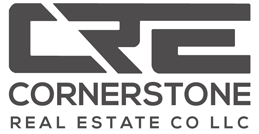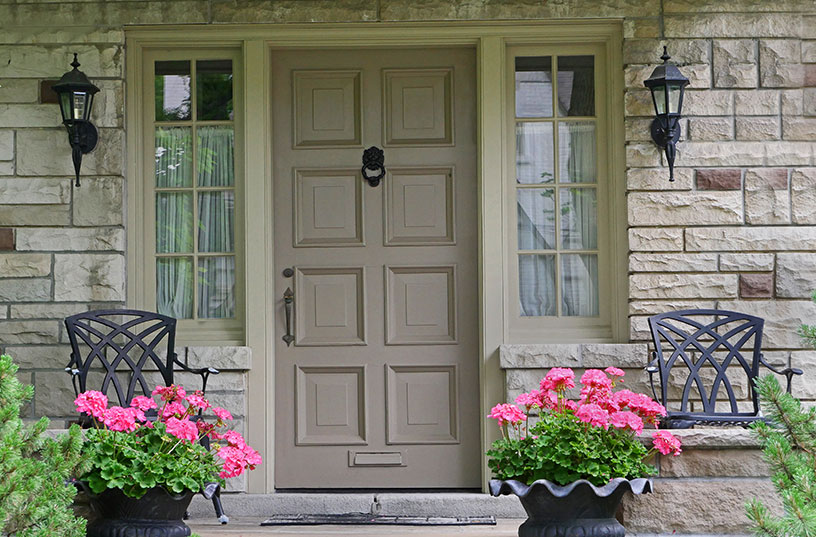When it comes to selling your home, there are some cold, hard facts that you can’t escape! Some of these truths may not be what you want to hear but knowing and understanding them can help you sell your home faster and with less frustration. Ready or not, here’s what you need to know:
#1. You must know your local real estate market.
What you hear on the news or read online about national real estate trends does not always apply to your local market. Sure, house prices may be rising in certain “hot” markets or in areas where there is a low inventory of houses for sale, but this may not hold true in every area. Your friend who lives in another state, or even another city might be getting a ton of offers – with some higher than asking price – while you’re waiting for just one decent offer. Understanding the local trends is key to pricing your home right and knowing which offers to accept. Speaking of pricing your home right…
#2. Homes that are priced right sell.
It sounds simple, but it’s actually a complex calculation that involves local market trends, home value estimates, comparable sales or “comps,” your home’s condition and more. Many people struggle with pricing. In fact, a recent nationwide survey revealed that 31% of sellers found it difficult to determine their home’s list price.. Of course, last year’s crazy real estate market didn’t help the situation! It was a strong seller’s market where many homes sold within a week at full asking price or higher amid bidding wars. But the market has changed and so has pricing. How do you find the “sweet spot” when pricing your home? Follow these steps:
- Start with a home value estimate – You can use an online Home Value Estimator, or work with a trusted agent.
- Conduct a comparative market analysis – Your real estate agent will compare homes similar in size, amenities, age, and condition to help you determine the appropriate selling price. Keep in mind, a house of the same size and age just down the street may have more desirable features, such as new hardwood flooring or an updated kitchen, which will increase the value.
- Try to remove emotion from the process – You may love your home. It probably has a lot of great memories, which makes selling it emotional. However, you can’t put emotions over logic. Buyers won’t appreciate the “sentimental value” attached to your home. You may have learned to live with limited closet space or a quaint, but cramped kitchen, but potential buyers will take note of them in their decision making.
#3. Well maintained, clean, uncluttered homes sell for more money.
Okay, so you may not be able to update the kitchen or replace the flooring, but you can present your home in its best light. Studies show that clean, decluttered homes sell faster and at a higher price. As they say, first impressions are powerful. You want potential buyers to fall in love with your home, not all your stuff. Start by removing all the clutter, including knickknacks and photos. Personal items only distract buyers, so pack them up and put them in storage if necessary. Give your buyers a “blank canvas,” so they can imagine themselves living there. Removing clutter will also make your home feel bigger. But don’t stuff everything into closets or cupboards because buyers look inside these spaces to assess storage. Ideally, you want closets and cupboards to be 2/3’s empty.
It’s also wise to invest in a deep cleaning before listing your home. Even if you keep a very clean house, a deep cleaning will make your house shine. Buyers perceive clean homes as well cared for and maintained. Although most selling homes are not brand new, people expect them to look and feel new. Dust and dirt or stained surfaces could be a dealbreaker. The same is true for maintenance. If a house is in a worn condition and shows a lack of preventive maintenance, the property could lose 10% of its appraised value. Chipped paint, cracked caulk around the windows, untrimmed bushes, and worn carpeting are just a few of the noticeable issues that may affect the value of your home.
If you’re not sure where to start, consider working with your agent to stage your home. According to reports by the National Association of Realtors, 86% of potential buyers find it easier for themselves to visualize a property when it’s staged.
#4. Disclose defects.
It may be tempting to hide defects, but this will almost always come back to haunt you. First and foremost, it’s illegal for a home seller to knowingly conceal major defects from buyers. In fact, most states’ laws require sellers to make formal property disclosures covering major home components, such as a cracked foundation or a leaky roof. Full disclosure could help you avoid a lawsuit. When it comes to minor defects, honesty is still the best policy. It’s a good idea to have your home inspected before putting it on the market and then making needed repairs. Making these repairs may even help you sell faster and at a higher price (see #3). Being honest and accurate now can save you from future headaches.
#5. Quality photos and videos can sell homes.
Most home buyers look for property online, so photos or videos are a buyers’ first impression of your home. While you may be good with a camera, professional photos get 61% more online views. And homes that have been professionally photographed bring in a 47% higher asking price per square foot! Professionally photographed homes also sell 32% faster than their counterparts.1 Video tours of homes are becoming more popular than ever. A quality video visually entices buyers by making buyers feel like they’re visiting your property. Younger buyers, especially, expect video tours of listings, so you’ll be appealing to a broader audience, as well as giving yourself a competitive advantage.
#6. Selling a home is inconvenient.
Sorry, but there’s no getting around it. Having your home on the market forces you to keep your house clean and uncluttered and “show ready” all the time. Strangers will be coming through your home, and you may feel like you’re living under a microscope. Being constantly prepared to show your home is no fun, but it’s unavoidable. And that brings us to the next inconvenient fact…
#7. Yes, you must leave during showings.
Having to leave your house at a moment’s notice gets tiresome, but it’s necessary. Buyers want to peruse your home freely without worrying about your feelings. In addition, if you’re present, buyers and their agents may try to uncover details from you that could give them a reason to offer you less money for your home or reduce your negotiating power. While leaving your home may be inconvenient, it’s better for all parties.
#8. Requiring a buyer to provide proof of funds increases the likelihood of selling your home.
Home sellers often require proof of funds from a potential buyer, whether the buyer is obtaining a mortgage or using cash. A Proof of Funds Letter shows evidence that the buyer has the funds for a down payment and/or closing costs before agreeing to sell to them. A preapproval letter isn’t always enough. This letter should list the date, the name of the account holder and the balance of funds on deposit at a financial institution on official letterhead. This not only gives you (the seller) peace of mind but increases the likelihood that the transaction will be completed without an issue.
#9. Ignoring communications jeopardizes the sale of your home.
Once you put your home on the market, there is a lot of communication between you and your agent and the buyers’ agents that should be handled in a timely manner. When your agent wants to show your home, you may have to drop everything and vacate the premises. If there’s an offer that you’re considering, your agent needs to know your decision in a reasonable amount of time. A buyer may get impatient and move on to another listing. If you make it difficult for the real estate community to schedule showings they may avoid your home. So, it’s important to promptly return calls from your agent and cooperate with him or her to arrange showings. If you don’t, you may miss out on a potential sale and cause your home to be on the market longer than it needs to be. Of course, it works both ways: Your agent should be responsive to your calls or texts.
#10. Cash isn’t always “king.”
A cash offer for your home may sound appealing and give you more confidence in the buyer, but it’s not always the best offer. Sure, there’s less risk involved, especially if you’re trying to sell your home fast, but its wise to weigh all your options. If you need time to find a new home or want to be sure you’re getting the best offer, you might be better off with a mortgaged buyer. It all depends on the details of the offer. In recent years, when buyers were engaging in bidding wars, the number of home buyers paying cash increased. It’s faster and there are less contingencies, such as appraisals. However, it’s better to compare closing dates and timelines among offers to see what works best for you. Also, cash offers tend to be lower than financed offers, so even if you’re interested in selling quickly, be sure to consider all the offers. Finally, it’s smart to have an agent who’s experienced with cash buyers.
Let’s be honest, selling your home is inconvenient and stressful. From preparing your home for sale and determining a price, to vacating your home for showings, it’s a lot of work. An online survey by Ipsos on behalf of Zillow reveals that 77% of Americans who have sold a home say the experience was very stressful, ranking right up there with going through a breakup, planning a wedding, and getting fired! So, it’s no surprise that 36% of home sellers admit to crying during the process.
Working with an experienced, trusted real estate agent might prevent a few tears. Here at Cornerstone, we can’t eliminate all the stress or inconvenience, but we can make the process a bit easier. When you choose to work with one of our agents, you’ll receive the benefit of accurate and timely information, skilled analysis, and sound advice. With our deep market knowledge, we know what it takes to get your home sold for the most money in the shortest timeframe. And with our trusted network of professionals, we can help with everything from repairs, estate sales and staging to inspections, surveying and title services. Contact us here to learn more.
1 https://www.rubyhome.com/blog/real-estate-photography-stats/
2 https://www.nerdwallet.com/article/mortgages/are-cash-offers-better-for-sellers










